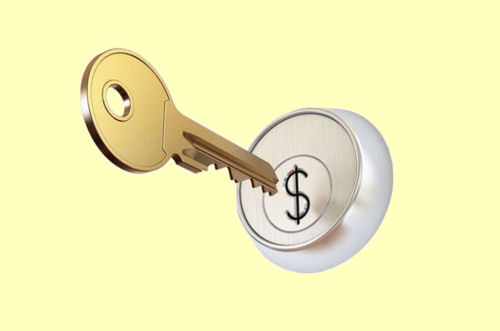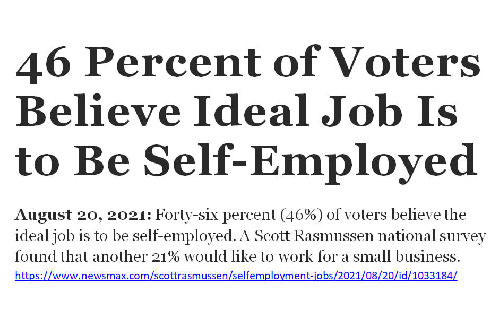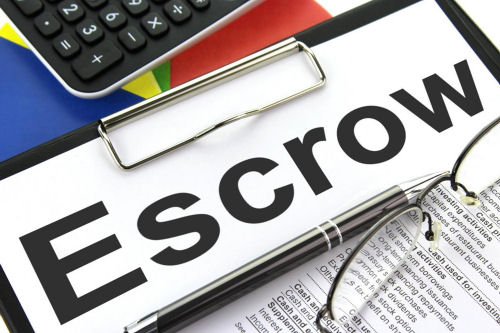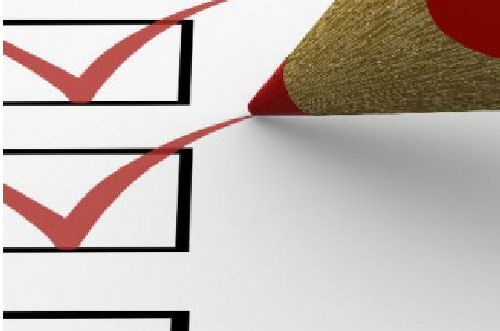Key Money in Thailand
Key Money (not to be confused with 'Tea Money'), exists in several countries – Thailand, Pakistan, Japan, Korea, France, Sweden, USA, and up until 2003, Australia. Although the name is common in these countries (except Pakistan where it is referred to as paghri and Japan where is is known as reikin (literally, 'gratitude money'), the meaning is different, and even within different parts of Thailand, the meaning is different. This article deals only with Thailand. Key Money gets its name from the fact that after it is paid, the Lessee is given the key to the property.
To understand what Key Money is and how it works, you first have to understand the stakeholders in a LEASE transaction. First up there is the owner of a property (lets say its a shop house building) – this person is commonly referred to as the Landlord. Secondly, there is the occupant of the building being leased who is normally carrying out some sort of business in that building (hotel, bar, massage, spa, etc) – this person is referred to as the Lessee or Tenant. Typically, in most countries, there are two elements involved in the lease. A new tenant will pay the landlord a Security Deposit (sometimes called a rental bond) and Rent. Typically, a new tenant then creates a business in that building and commences trading. They now also become known as the Business Owner as the tenant now owns the 'business' being carried out in that leased location. And, assuming the business is viable and in demand, it becomes a saleable asset.
In some instances when leasing property in Thailand, another element, other than the Security Deposit and the Rent, sometimes comes into play – Key Money. So what is Key Money - it is not Rent and it is not the Security Deposit?
Key Money is an amount of money that is paid by a Lessee to a Landlord when entering into and/or renewing a lease agreement for a property. It is most common with properties being used as bars, restaurants, clubs, massage shops, hotels and other 'tourist industry' businesses, or premises in 'tourist areas'. It may or may not apply depending upon the needs of the Landlord. Unlike a Security Deposit which is generally returned in full at the expiration of a tenancy (assuming you comply with the conditions of the lease agreement), Key Money is NON REFUNDABLE.
To a Lessee, Key Money is often thought of as ‘Jam Money’ or money for nothing. The Lessee gets nothing for it, and generally despises paying it. To potential buyers of a business, where Key Money is involved, it often dissuades them from buying as they sometimes see it as an illegal payment – it’s not rent and it’s not a bond, so why should they pay it? To Business Owners in a Key Money lease, they view it as just another overhead that has to be taken into account in order to make profit. Landlords see it as a security on their investment as they too are in business – the business of deriving income from their property.
Why do Landlords charge Key Money? There have been many examples in Thailand over the years where enthusiastic, but inexperienced foreigners arrive in country with very little cash wanting to live the dream of owning their own business in Thailand – a bar in Pattaya or a hotel on a remote island (as examples). They typically signed a lease, put down a Security Deposit and started paying rent, but then very shortly into the lease, they start struggling financially for many reasons – low season, relationship breakup, language problems, problems back in their home country, etc, etc. And the result is that they have to sell very quickly (very hard to do) or they close up shop – they forfeit their Security Deposit if they do not comply with the lease agreement and they move out, leaving the Landlord with an empty building and no income. To address this problem, Landlords often choose to charge Key Money up-front, sometimes in addition to a Security Deposit and sometimes instead of. This approach would at least guarantee the Landlord their expected income by leasing the property. Often, a tenant's monthly rent would be reduced to take account of the key money payment so in some respects it was a bit like non-refundable rent in advance. By way of example: A Landlord will assess how much rental income they want for their property over (say) a one year period. Let’s say that figure is 1.2 million baht or 100,000 baht a month. Instead of charging a tenant 100,000 baht a month in rent, they may choose to charge the tenant (say) 660,000 baht Key Money upon entering into the lease agreement and every 12 months thereafter, with rent of only 45,000 baht a month. In this example, in terms of money paid to the Landlord by the Tenant, it’s the same. Landlords sometimes see this as a safer way of offering their property for lease as it ensures them a guaranteed income of (in this example) 660,000 baht regardless of how the tenant performs as a business owner, and they (probably quite rightly) think it helps the tenant to meet their monthly rental commitment by keeping the monthly rent cost low.
Not all landlords charge Key Money and if they do the amount asked for Key Money varies. It is set by the Landlord and is generally (but not always) not negotiable. The frequency Key Money is paid also varies and is also set by the Landlord. Common frequencies are:
once only – upon initial lease commencement,
recurring – upon initial lease commencement and every renewal thereafter, and
recurring – on set dates regardless of when a lease commences or is renewed.
In Pattaya and Phuket, it is common for Key Money to be paid upon initial lease commencement and every lease renewal thereafter. In other places where Key Money is common, it is generally paid only once upon commencement of a lease.
Who pays Key Money? It is always the new lessee’s responsibility, however sometimes to entice buyers, sellers will advertise ‘Key Money Included’ or ‘Key Money Paid’. In these cases, the amount of the key money is usually added to the asking price and will then be paid by the seller to the Landlord (on your behalf). There are also some examples of sellers offering to pay HALF the Key Money. Once again, typically the half that the seller will pay for you has been added to the asking price. Contrary to popular belief, Key Money is not only charged to foreigners. It would appear to apply equally to Thai nationals also.
Key Money is not illegal. If a Landlord offers tenancy under this arrangement and you agree, then the transaction is perfectly legal. Importantly though, you do need to determine whether or not you will receive an official receipt for your payment/s (often the answer is no) AND you do need to ensure that the actual amount you pay for rent is the same amount shown in the Lease Agreement (often, when Key Money applies, it is not). These two issues are pretty much done so the Landlord can avoid tax and if he or she does that, then that is the part about Key Money that is illegal. For you, you really must get a receipt and you must have a lease that shows the same amount of rent you pay as the amount of rent you pay! If you don't, you may not be able to claim these expenses as legitimate business expenses to offset your income.
Before buying a business in Thailand and/or entering into a lease agreement for property, you should be advised whether Key Money applies or not and what the conditions of the payment/s are. Prudent buyers of businesses where Key Money applies will understand that the payment of Key Money is not unlike Rent and if treated as such just represents an additional expense paid up front rather than monthly – an expense that needs to be taken account of in financial projections and performance.
How can you avoid paying Key Money? If you don’t like the conditions of a lease (where the payment of Key Money will be shown if it applies), then do not enter into that lease agreement – don't sign it! You will probably find though that many good properties in Thailand's busier locations do have Key Money so you will need to make a decision - take that property with Key Money, or find another location.
| Although originally from Melbourne, Australia, Ken has lived and worked in nearly all major cities in Australia and, since 2005, SE Asia. He has founded, operated and partnered in companies, partnerships and sole trader businesses in three countries. His particular passion is small business and all of his companies today are based in Thailand and are real estate related. |




 Ideal Job is to be Self Employed
Ideal Job is to be Self Employed Escrow in Thailand
Escrow in Thailand

Landlords in Thailand have now realized that charging Key Money discourages people from renting their buildings, so they seem to be charging something very similar instead. They are calling it a "Contract Renewal Fee". So they are advertising "No Key Money!" but they fail to mention it may actually cost you a few hundred thousand baht to have a contract changed into your name. Something to be aware of.
Reply to
Leave a Comment
Good point Palm and yes I have noticed this 'new' fee creeping in. For all intents and purposes it is just Key Money under a different name. Buyers need to ask about this, and ask if it recurs upon each lease renewal too! Like Key Money, it is not illegal as such, but same applies as it does with Key Money - ask first if you are going to receive an official receipt and if it is recurring, make sure it is in the Lease Agreement.
Th following was extracted from a Lease Agreement (in Thai - it has been translated into English). Interestingly, the Lessee didn't even know it existed! It is basically KEY MONEY and the amount is rather sizeable. Please READ your lease agreement before signing!
"Clause 9. The tenant has no right to sub-lease, operate the business nor transfer lease rights to another person whether in whole or in part the premise, unless the landlord agrees in writing.
In the event that the tenant wishes to add, reduce or change company directors or shareholders in the company. The tenant must notify the landlord in writing at least 15 days prior to the registration change. And the tenant must obtain the consent of the lessor first. If the tenant violates, it shall be deemed that the tenant is in breach of the contract in essence. The lessor has the right to terminate the contract immediately.
In the case where the landlord gives consent under paragraph one or paragraph two, the lessee agrees to pay compensation to the lessor in the amount of 3,000,000 baht.
In the event that the tenant violates this contract This lease shall be deemed to be terminated immediately. without the lessor having to tell"
Reply to
Leave a Comment